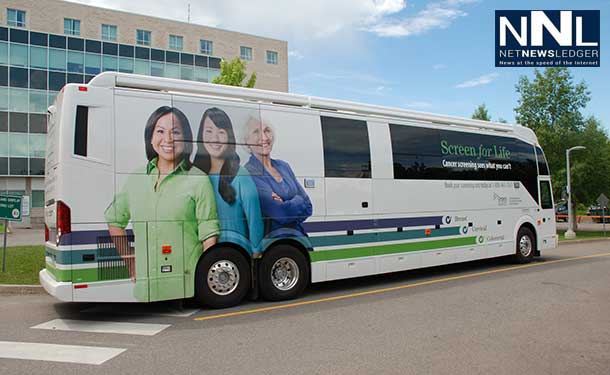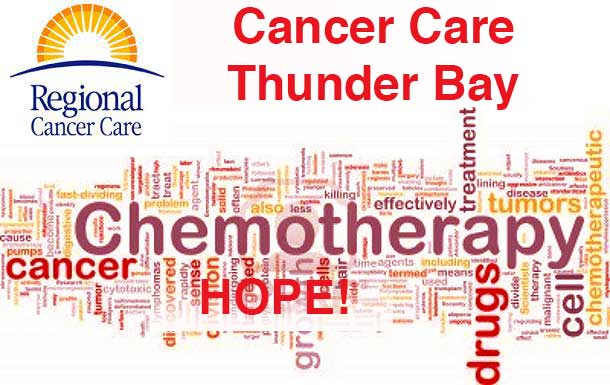
 THUNDER BAY – LIVING – World Cancer Day 2016 marks the first anniversary of My CancerIQ. To mark the two events, today Cancer Care Ontario is introducing two new cancers to the year-old online cancer risk assessment tool. Now, in addition to breast, cervical, colorectal and lung cancer, residents of Northwestern Ontario can also assess their risk for kidney cancer and melanoma at MyCancerIQ.ca.
THUNDER BAY – LIVING – World Cancer Day 2016 marks the first anniversary of My CancerIQ. To mark the two events, today Cancer Care Ontario is introducing two new cancers to the year-old online cancer risk assessment tool. Now, in addition to breast, cervical, colorectal and lung cancer, residents of Northwestern Ontario can also assess their risk for kidney cancer and melanoma at MyCancerIQ.ca.
Based on data from the Ontario Cancer Registry, for the period 2011 to 2012, the incidence rate for melanoma was 18.4 for every 100,000 people and the rate for kidney cancer was 12.5 for every 100,000 people*. In Northwestern Ontario, the incidence of melanoma was significantly below the provincial average at 11.9 for every 100,000 people, while incidence for kidney cancer was the same as the provincial average. However, the incidence of both cancers is on the rise in Ontario.
While specific cancer rates vary across the province, what all of the cancers included in the My CancerIQ tool have in common is that they have modifiable risk factors that can be affected by lifestyle. For example, in Northwestern Ontario, breast, colorectal and lung cancer rates are higher than their respective provincial averages, and all three have modifiable risk factors that we can learn about using My CancerIQ.
“Some of the increased rates of breast, colorectal and lung cancers have been attributed to higher rates of unhealthy lifestyle habits in our region. The good news is that there are several changes that people can make to decrease their risk of these cancers, in addition to other cancers and chronic diseases,” explains Dr. Nicole Zavagnin, Northwest Regional Primary Care Lead. “Some healthy changes that people can focus on include: maintaining a healthy weight, eating a balanced diet, exercising regularly, not smoking or quitting smoking if you presently smoke, and not consuming excess alcohol. Even if a person has a family history, or other non-modifiable risk factors, these measures can help to decrease their overall risk.”
My CancerIQ is a comprehensive, evidence-based assessment that is confidential, quick and easy to use. “It allows people to gain a better understanding of the risk factors associated with different types of cancers, and can empower individuals to be more proactive about their health and assist them in lowering their cancer risk,” explains Zavagnin.
Since the launch of My CancerIQ in early 2015, more than 146,000 Ontarians have learned about their cancer risk and how to lower it. With the addition of melanoma and kidney cancer, Cancer Care Ontario wants to help Ontarians better understand how to reduce their risk. It is estimated that as many as half of all cancers in Ontario could be prevented by eliminating known risk factors.
Specifically, to reduce the risk of kidney cancer, Ontarians should maintain a healthy blood pressure, bodyweight and avoid smoking. To reduce the risk of melanoma, Ontarians should enjoy the sun safely, avoid tanning equipment and know their skin so they can recognize changes or the need for a skin examination.
“Since its launch, My CancerIQ has proven to be a successful cancer assessment resource for our patients and community,” says Tarja Heiskanen, Manager of Screening and Assessment at Thunder Bay Regional Health Sciences Centre. “I encourage everyone in our region to visit MyCancerIQ.ca today and assess their personal risks for developing cancers, including kidney, melanoma, breast, cervical, colorectal and lung. Additionally, for those who are eligible for cancer screening, they should make sure they get screened for breast, cervical and colorectal cancers.”
To find out more about kidney cancer and melanoma risk factors, residents of Northwestern Ontario are encouraged to visit MyCancerIQ.ca to complete the cancer risk assessments, get their personalized action plans and share and discuss their plans with their families and healthcare providers. My CancerIQ can be accessed from a smartphone, tablet or desktop.
For more information, follow Cancer Care Ontario on Twitter and Facebook and join the conversation using the hashtag #MyCancerIQ. For more information on cancer screening, visit www.tbrhsc.net/cancerscreening.
*Age-standardized incidence rates for melanoma and kidney cancer, by LHIN, 2011-2012.
About My CancerIQ
My CancerIQ is a confidential online tool that allows Ontarians to determine their personal risk factors for melanoma, breast, cervical, colorectal, kidney and lung cancer. At the end of each My CancerIQ assessment individuals receive a personalized risk assessment and action plan with tips and resources based on their individual risk factors. My CancerIQ was created by Cancer Care Ontario – a division of CCO and the Ontario government’s principal cancer advisor – in partnership with the Ministry of Health and Long-Term Care.







